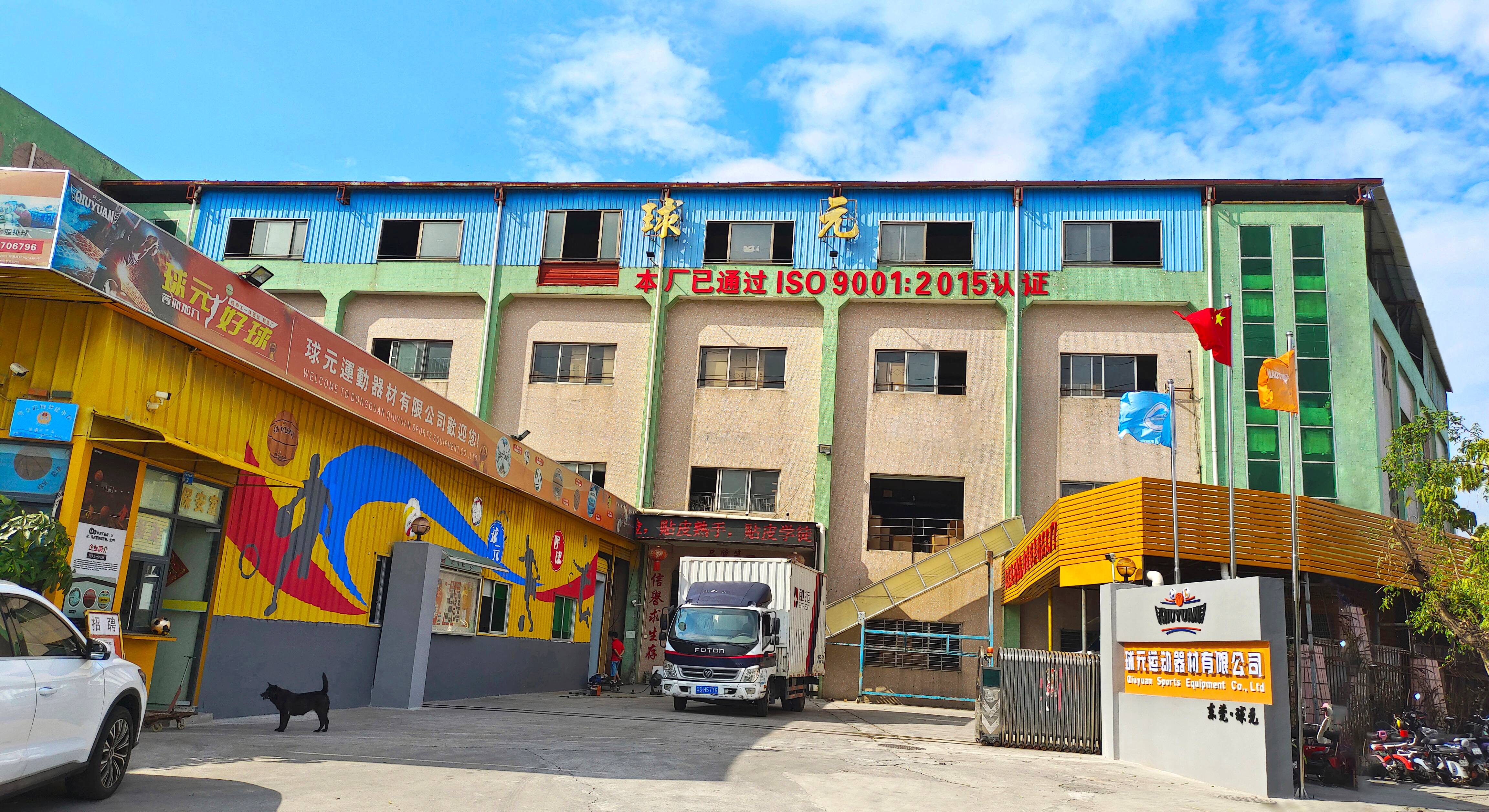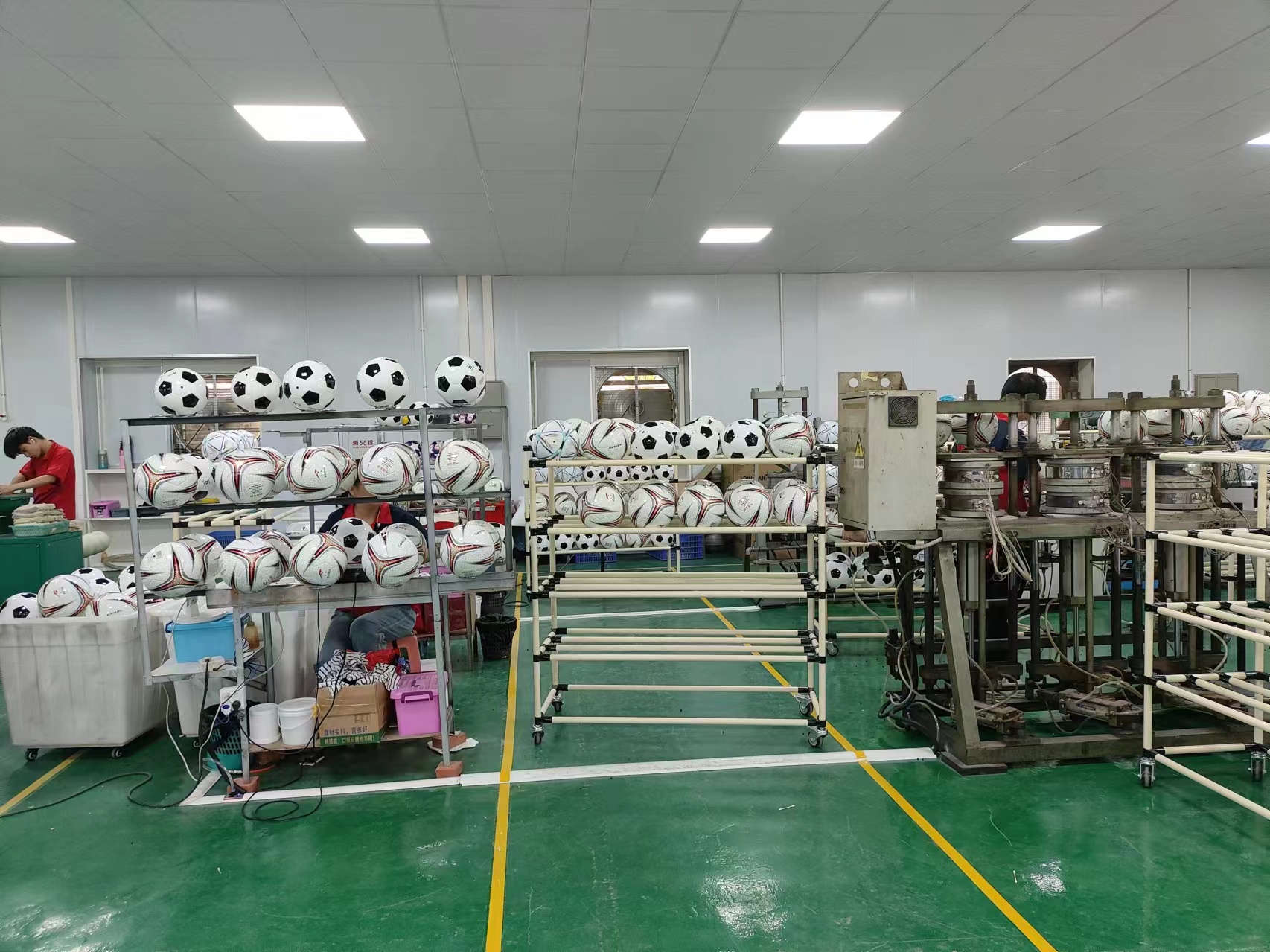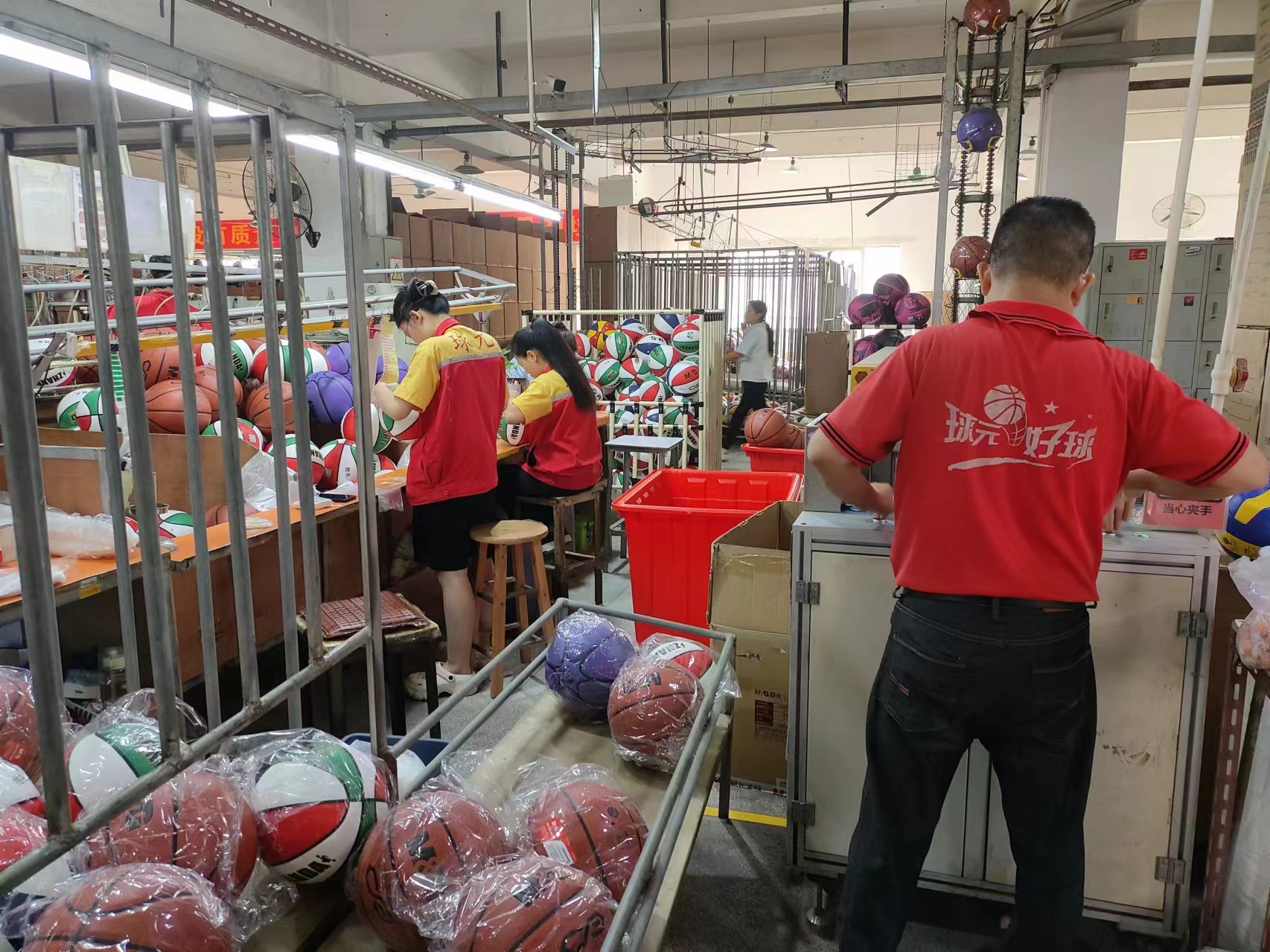
Even orders less than it was last years, but it's time for doing somehting as for decoration to Factoy.
pictures also nice shot in the day of sunshine.

The thermal bonded workshop looks good after a week decorting.

Basketball workshop also changed as well.
In all of these changes, with a praying heart that aches for more orders in the comming future.
Crafting Excellence: Inside the World of Basketball and Soccer Ball Manufacturing
Sports unite people worldwide, and at the heart of two of the most popular sports – basketball and soccer – are the balls themselves. While often taken for granted, the meticulous craftsmanship, advanced technology, and innovative design behind these sports essentials tell a fascinating story. This article explores the intricate process of manufacturing basketballs and soccer balls and the industry’s commitment to quality and sustainability.
Raw Materials: The Building Blocks of Precision
The journey of a basketball or soccer ball begins with the selection of high-quality raw materials. For basketballs, synthetic leather, rubber, and composite materials are commonly used, ensuring durability, grip, and responsiveness. Soccer balls, on the other hand, are crafted from polyurethane (PU) or polyvinyl chloride (PVC) panels, offering flexibility, weather resistance, and superior touch.
Recycled materials are increasingly incorporated, reflecting the industry's commitment to sustainability. For instance, some manufacturers use recycled rubber or eco-friendly synthetic leather, reducing environmental impact.
Design and Engineering: Where Function Meets Art
Design is a crucial step in ball manufacturing. For basketballs, engineers focus on achieving a consistent bounce, optimal grip, and durability. The surface is often embossed with pebble-like textures and grooves to enhance handling.
Soccer balls, known for their iconic panel designs, undergo meticulous engineering to ensure aerodynamics, weight balance, and precision. Modern soccer balls often feature thermally bonded panels, eliminating seams for improved performance and water resistance.
Production Process: From Concept to Court and Field
1. Material Preparation
Basketballs: Sheets of synthetic leather or rubber are cut into panels, with grooves or embossments added for grip and design.
Soccer Balls: Panels are machine-cut and prepared for stitching or bonding.
2. Assembly
Basketballs: Panels are assembled around a rubber bladder, stitched or glued together, and inflated to ensure uniform shape and size.
Soccer Balls: Panels are stitched (often by hand for premium balls) or thermally bonded, forming a spherical structure around an inner bladder.
3. Testing and Quality Control
Every ball undergoes rigorous quality control tests, including:
Durability: Simulating thousands of kicks, dribbles, or bounces.
Shape Retention: Ensuring the ball maintains its form under pressure.
Performance Metrics: Measuring bounce consistency, grip, and aerodynamics.
Innovation: Staying Ahead in the Game
Advancements in technology continuously push the boundaries of performance. Micro-textured surfaces on soccer balls improve aerodynamics and ball control, while smart basketballs equipped with sensors provide data on shot accuracy and dribbling metrics, revolutionizing training methods.
Sustainability: A New Frontier
Manufacturers are increasingly adopting eco-friendly practices, such as:
Reducing waste through efficient cutting techniques.
Utilizing water-based adhesives instead of harmful chemicals.
Investing in renewable energy to power production facilities.
Conclusion
The production of basketballs and soccer balls is a perfect blend of art, science, and innovation. Behind every dribble, pass, or goal lies the dedication of skilled workers and engineers committed to creating equipment that meets the demands of athletes and enthusiasts alike. As technology advances and sustainability becomes a priority, the industry continues to evolve, ensuring that these beloved sports remain accessible and enjoyable for generations to come.